Words with the root anthrop, meaning “human,” offer a fascinating lens through which to explore our understanding of humanity and our place in the world.
From anthropology to misanthropy, these words delve into the complexities of human nature, shaping our perceptions and interactions.
Root Word and Meaning
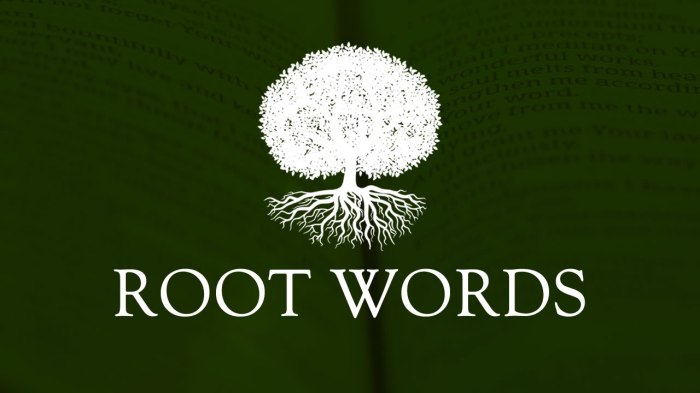
The root word “anthrop” originates from the Greek word “anthropos,” which means “human being.” It is commonly used in English to refer to the study of humanity and human characteristics.
Words that contain the root “anthrop” typically relate to the study of human behavior, culture, and society. Some examples include:
Examples
- Anthropology:The scientific study of human beings, their culture, and their societies.
- Anthropometry:The scientific study of the human body and its measurements.
- Anthropomorphism:The attribution of human characteristics to non-human entities.
- Philanthropy:The practice of giving money or other resources to help others.
Etymology and History
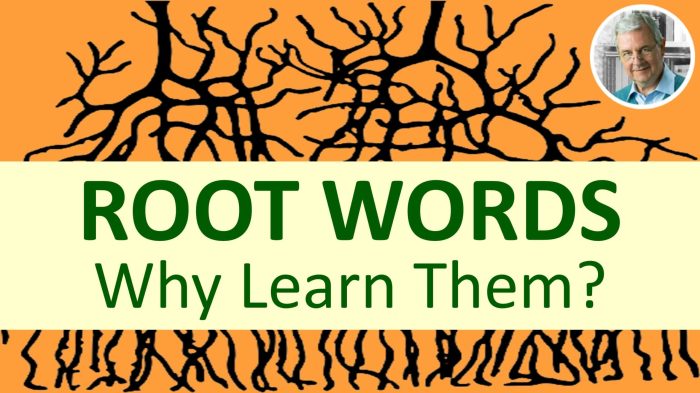
The root “anthrop” originates from the Greek word “άνθρωπος” (anthropos), meaning “human being” or “mankind.” It has been used in various languages throughout history to refer to concepts related to humans and their characteristics.
Over time, the root “anthrop” has evolved and expanded in its usage. It has been incorporated into numerous scientific and academic disciplines, including anthropology, sociology, psychology, and linguistics. In these fields, “anthrop” denotes the study of human behavior, culture, and society.
Usage in Different Languages
The root “anthrop” has found its way into many languages worldwide. Here are a few examples:
- English: anthropology, anthropomorphism
- French: anthropologie, anthropomorphe
- Spanish: antropología, antropomorfo
- German: Anthropologie, anthropomorph
- Russian: антропология (antropologiya), антропоморфный (antropomorfnyy)
Use in Different Disciplines
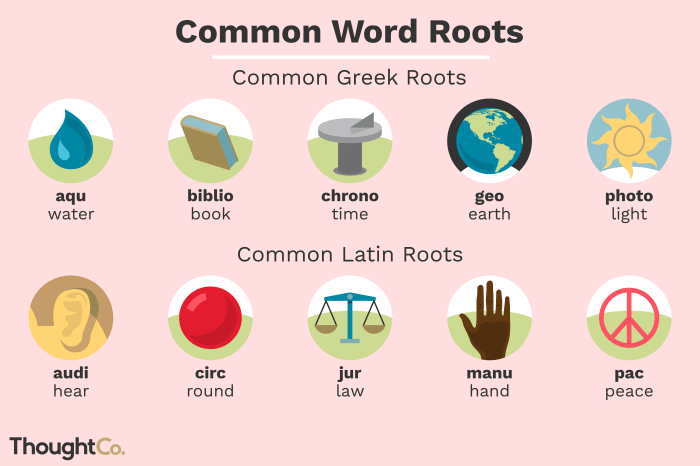
The root “anthrop” is frequently employed in various academic fields to refer to human-related aspects. Its usage varies depending on the discipline, but it consistently conveys the idea of humanity or human nature.
Anthropology
In anthropology, “anthrop” is central to the study of human cultures, societies, and evolution. Anthropologists use terms like “anthropology” and “anthropologist” to describe their field and its practitioners. They explore human diversity, social structures, and cultural practices across different societies.
Sociology
Sociology also utilizes the root “anthrop” to investigate human behavior and social interactions. Sociologists employ terms like “anthropocentric” and “anthropogenic” to analyze how human activities shape the environment and social systems. They examine the impact of human values, beliefs, and social institutions on society.
Philosophy, Words with the root anthrop
In philosophy, “anthrop” appears in terms like “anthropology” and “anthropocentrism.” Philosophers explore the nature of human existence, consciousness, and morality. They question human knowledge, the limits of human reason, and the ethical implications of human actions.
Biology
Biology incorporates the root “anthrop” in fields such as “anthropometry” and “anthropology.” These disciplines focus on the measurement and study of human physical characteristics, including body composition, proportions, and variations. Biological anthropologists investigate human evolution, genetics, and the impact of environmental factors on human health and well-being.
Cultural and Societal Implications: Words With The Root Anthrop
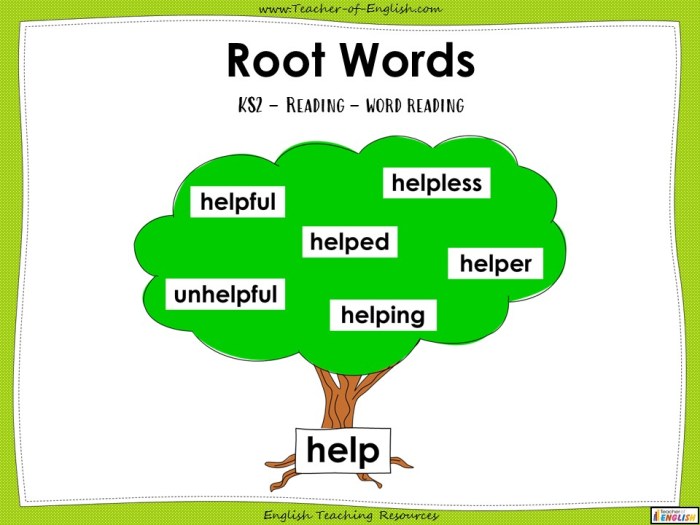
Words with the root “anthrop” hold significant cultural and societal implications, shaping our understanding of humanity and our place in the world. They reflect our fascination with human nature, our attempts to define what it means to be human, and our aspirations for a better society.
Anthropocentrism and Human Exceptionalism
Many words with the root “anthrop” imply a human-centered perspective, known as anthropocentrism. This worldview places humans at the center of the universe, assuming that our needs and values are superior to those of other species.
Anthropocentrism has both positive and negative consequences. On the one hand, it has motivated human progress and innovation. On the other hand, it has led to environmental degradation and the exploitation of non-human animals.
Human Diversity and Cultural Relativism
Other words with the root “anthrop” emphasize human diversity and cultural relativism. They acknowledge that there is no single, universal definition of humanity and that human behavior is shaped by culture and context.
This perspective encourages tolerance and understanding of different cultures. It also challenges the notion of human superiority and the idea that one culture is inherently better than another.
The Search for Meaning and Purpose
Words like “anthropology” and “anthropologist” highlight our ongoing quest for meaning and purpose in life. They suggest that humans are not merely biological beings but also social and cultural creatures who seek to understand their place in the world.
The study of anthropology helps us to appreciate the diversity of human experience and to recognize the commonalities that unite us as a species. It also provides insights into our own culture and helps us to understand the challenges and opportunities we face as a global society.
Related Concepts
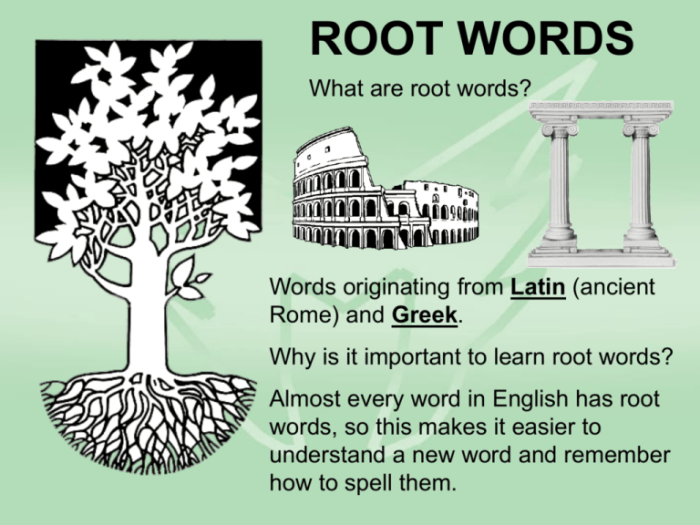
The root “anthrop” connects to various concepts that share a common thread of human-centeredness. These concepts explore different aspects of human nature, behavior, and interaction.
One related concept is anthropology, the scientific study of human beings, their cultures, and their societies. Anthropologists examine the physical, social, and cultural dimensions of human existence, seeking to understand the diversity and commonalities among human populations.
Anthropocentrism
Anthropocentrism is a philosophical perspective that places humans at the center of the universe or as the most important beings in existence. This view often leads to a belief in human superiority over other species and a disregard for the environment.
Anthropometry
Anthropometry is the scientific study of the human body, its dimensions, and proportions. It involves measuring and analyzing physical characteristics such as height, weight, body composition, and skeletal structure. Anthropometry is used in various fields, including ergonomics, forensic science, and medical research.
Anthropomorphism
Anthropomorphism is the attribution of human characteristics to non-human entities, such as animals, objects, or natural phenomena. It is a common literary device used to create empathy and relatability in stories and fables.
Philanthropy
Philanthropy is the act of giving money, time, or resources to support charitable causes or the well-being of others. It is rooted in the idea of human compassion and a desire to make a positive impact on society.
The root anthrop- in English can give us a good idea about the meaning of a word, such as anthropology (the study of humanity). A case in point is the recent chicago b & qr v krayenbuhl legal case where anthropology was a key component in understanding the cultural significance of the artifacts in question.
This is just one example of how the root anthrop- can help us understand the world around us.
Literary Analysis
Words with the root “anthrop” are frequently employed in literature to explore the complexities of human nature and society. These words provide a rich vocabulary for writers to delve into the psychological and social aspects of their characters, plots, and themes.
Character Development
Words like “anthropology” and “anthropocentric” can help authors create characters with nuanced understandings of their own culture and place in the world. By examining human behavior from a broader perspective, characters can gain insights into their motivations, biases, and relationships.
Plot Development
The root “anthrop” can also contribute to plot development by creating conflict and tension. For instance, stories that explore the clash between different cultures or ideologies often use words like “anthropology” to highlight the misunderstandings and prejudices that can arise.
Themes
Words with the root “anthrop” can serve as powerful tools for exploring universal themes in literature. For example, “anthropocentrism” can be used to critique the human tendency to place humanity at the center of the universe, while “anthropology” can shed light on the interconnectedness of all human cultures.
FAQ Section
What is the origin of the root anthrop?
The root anthrop derives from the Greek word anthropos, meaning “human being.”
How is the root anthrop used in different disciplines?
The root anthrop is commonly used in disciplines such as anthropology, psychology, and sociology to explore human behavior, culture, and society.
What are some examples of words with the root anthrop?
Examples of words with the root anthrop include anthropology, misanthropy, philanthropy, and anthropomorphism.